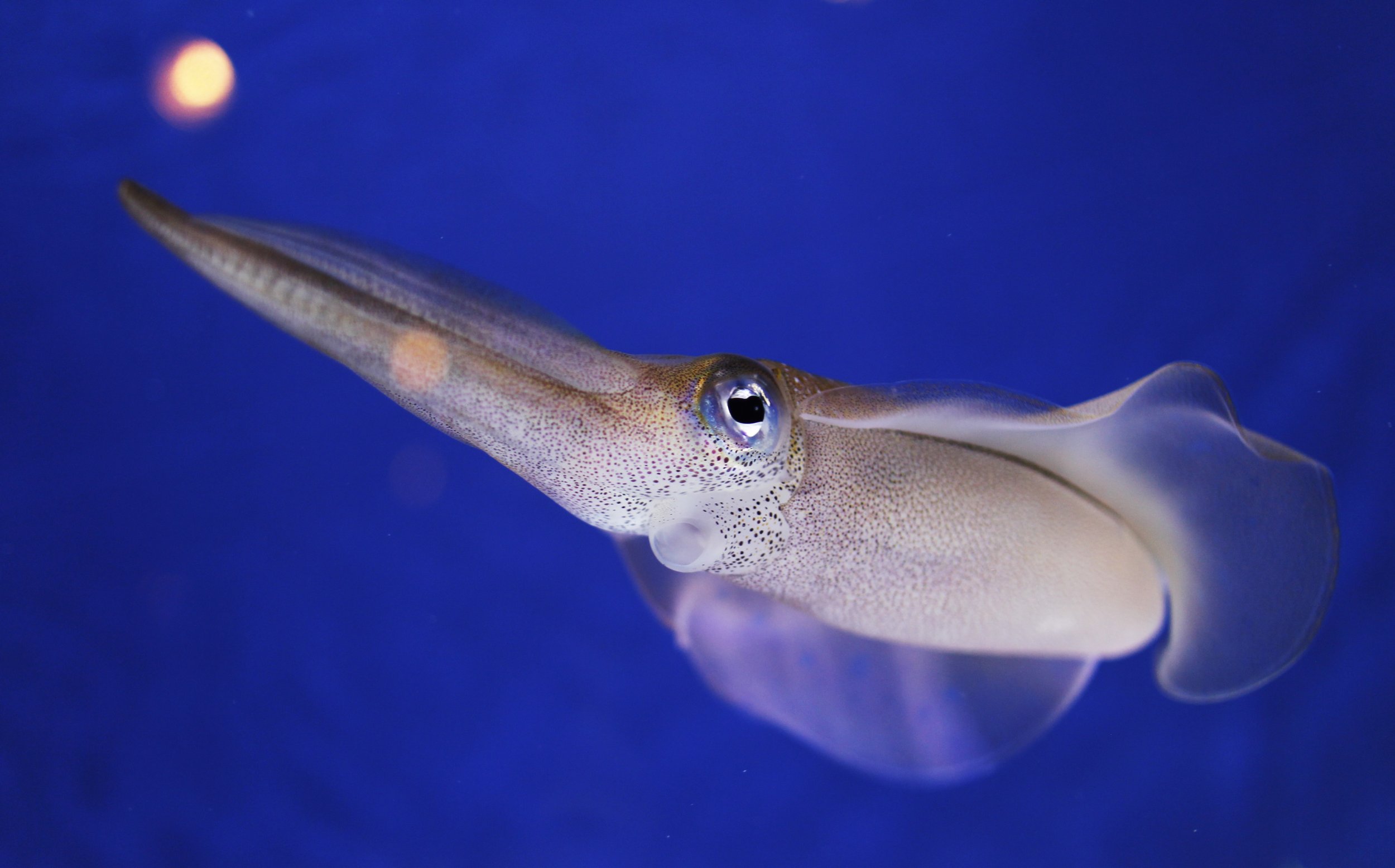
When the 100-pound Humboldt squid wraps its tentacles around its prey, the sharp teeth studding some of its suckers dig in and hold on. They're remarkable tools made from tough and flexible proteins called suckerins that are the same family as the keratin in our fingernails—but may be even more useful. Scientists say they've turned them into a biocompatible material as versatile as any we've made before.
The team of researchers from Nanyang Technological University and the Agency for Science, Technology and Research, both in Singapore, has identified 21 different suckerins. In their latest research, presented at the Biophysical Society Annual Meeting in Los Angeles, the group picked the most common of these suckerins, modeled it and learned to reproduce it in the lab. They found that the material melts when heated and hardens as it cools, like plastic. Depending on how they treat it, they can turn it into a soft gel or a stiff, elastic film.
The biodegradable protein has a structure very similar to spider silk, which researchers have studied heavily, speculating that it could be used to make medical tools such as specialty bandages, tiny neurosurgery sutures and artificial ligaments, as well as commercial and industrial products such as body armor, parachutes, sails and lightweight airplanes. The group in Singapore says that suckerin is easier to synthesize than silk and that it has just as much potential. One obvious application, they say, would be in structures for growing the soft tissues of replacement body parts.
"These materials provide a new paradigm by showing that a strong biomaterial can be entirely made of proteins, without the need to add a second hard phase, for instance a mineral like in bone, to strengthen it," said team member Akshita Kumar, a graduate student at Nanyang Technological University, in a statement.
Uncommon Knowledge
Newsweek is committed to challenging conventional wisdom and finding connections in the search for common ground.
Newsweek is committed to challenging conventional wisdom and finding connections in the search for common ground.
About the writer
To read how Newsweek uses AI as a newsroom tool, Click here.





